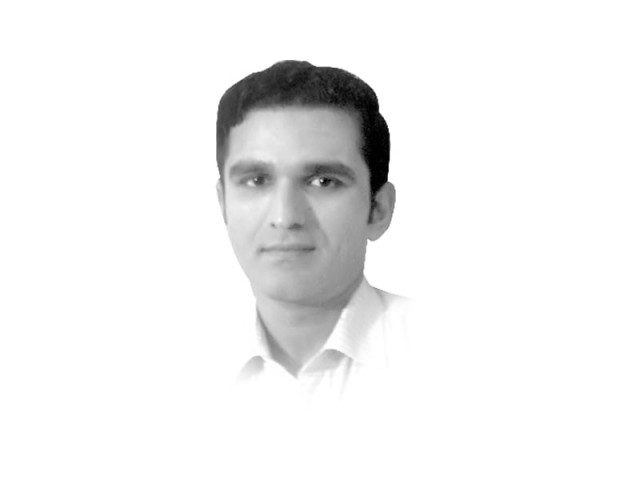Slow poisoned academia?
The ‘brain drain’ from Pakistan is one of the primary causes of the slow death of the academia in Pakistan.

The writer is the Chairperson of the Department of History, Forman Christian College, and tweets at @BangashYK.
First, an academic culture takes centuries to develop. The ancient universities of England and Europe did not suddenly emerge; it took a long time before they attracted enough scholars to become leading centres of research. In fact, from its inception in about the 11th century, it took till the High Middle Ages for Oxford to become one of the best universities of the world. The developmental period of a few centuries was critical in making Oxford (and well, Cambridge) the leading university of the world. Several things happened in this period, but the most important was the fact that certain bright scholars committed themselves to stay, research and teach at these universities. If one looks at the early academic centres in Pakistan — Punjab University, Government College, Forman Christian College and even the ones which flourished post-Partition like the universities of Karachi and Sindh — one can find a good list of scholars. However, when one looks at them now, at least in my discipline, history, one can hardly point out anyone even half-decent. Therefore, the ‘brain drain’ from Pakistan is one of the primary causes of the slow death of the academia in Pakistan. Almost all the well-known Pakistani scholars in history, political science, anthropology, are not living or working in Pakistan. What made them leave is obvious, but their absence certainly prevents the nurturing of future scholars in Pakistan. Just imagine if we also had an Irfan Habib or a Romila Thapar at hand, where our research in early and medieval South Asia would be!
Secondly, we have yet to embrace ‘liberal’ education. Yes, this will take a long time, but, at least, a concerted effort needs to be made in this direction. European, and then American, universities flourished after they embraced critical thinking and freedom of expression. Our universities are still mired in an age where not addressing a tutor in an old-fashioned submissive way is still a crime, where students are still ‘children’ and most importantly, where arguing with the tutor is considered disrespectful. In my experience, most tutors do know that they are perpetuating an archaic notion of the academia, but they deliberately do so because they themselves are on a weak footing and do not want anyone to figure it out. It is the rut within, which is eating up the academia more than anything else.
Thirdly and very importantly, the academia has failed to be the nerve centre or the ‘conscience’, as Dr Ali puts it, of society. Academia in Pakistan is notoriously divided and self-centred. Ever since I have come back to Pakistan, I have noticed that most academics like to live in their ivory towers and look with disdain upon others. They also like to pull one another down than help develop others or compete academically. Earlier this year, I, at the prompting of Professor Ayesha Jalal, set up a History Society in Lahore to promote history teaching and research in the city. The society has yet to garner enough interest to keep going for a while since working together to support one another is still a distant dream in Pakistan. In fact, there is very little interaction between universities in the city and seldom does one university invite another for joint initiatives or events — let alone the general public. At least, Lahore certainly has the critical mass to jump-start history teaching and research but it can only be done if we work together. Only then can our collective lament of the slow poisoning of academia be stemmed.
So let me take the first step. The Department of History, Forman Christian College is hosting a lecture by Dr Rajmohan Gandhi, Professor at the University of Illinois, Urbana-Champaign, on Abdul Ghaffar Khan followed by the book launch of his recent superb book entitled Punjab: from Aurangzeb to Mountbatten, at which Dr Mubashar Hasan, Ms Jugnu Mohsin and Mr Raza Rumi will speak. It is on December 5, 2013 at 3pm and all of you are invited.
Published in The Express Tribune, December 3rd, 2013.
Like Opinion & Editorial on Facebook, follow @ETOpEd on Twitter to receive all updates on all our daily pieces.















COMMENTS
Comments are moderated and generally will be posted if they are on-topic and not abusive.
For more information, please see our Comments FAQ